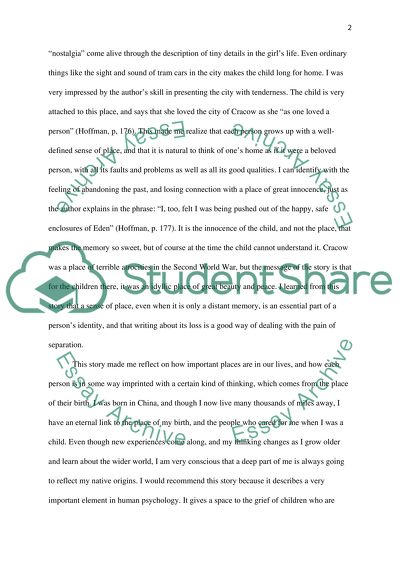Cite this document
(Importance Of The Homeplace And Nostalgia For It Book Report/Review, n.d.)
Importance Of The Homeplace And Nostalgia For It Book Report/Review. Retrieved from https://studentshare.org/literature/1398598-deepening-essay-lost-in-translation-and-the-way-to-rainy-mountain
Importance Of The Homeplace And Nostalgia For It Book Report/Review. Retrieved from https://studentshare.org/literature/1398598-deepening-essay-lost-in-translation-and-the-way-to-rainy-mountain
(Importance Of The Homeplace And Nostalgia For It Book Report/Review)
Importance Of The Homeplace And Nostalgia For It Book Report/Review. https://studentshare.org/literature/1398598-deepening-essay-lost-in-translation-and-the-way-to-rainy-mountain.
Importance Of The Homeplace And Nostalgia For It Book Report/Review. https://studentshare.org/literature/1398598-deepening-essay-lost-in-translation-and-the-way-to-rainy-mountain.
“Importance Of The Homeplace And Nostalgia For It Book Report/Review”, n.d. https://studentshare.org/literature/1398598-deepening-essay-lost-in-translation-and-the-way-to-rainy-mountain.


